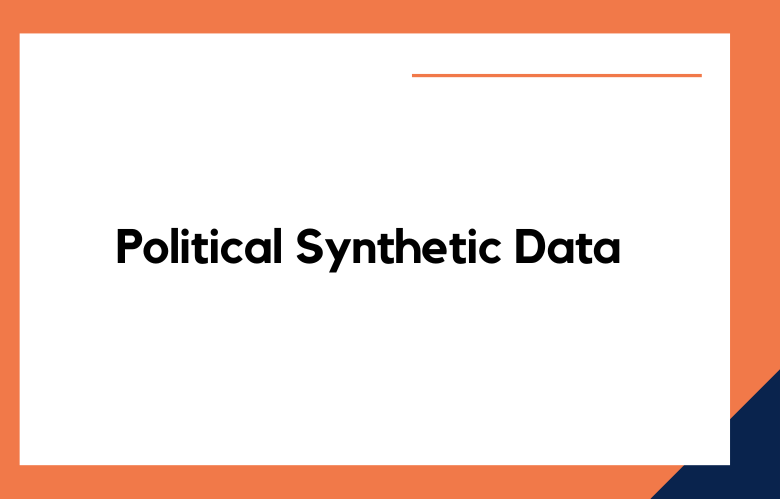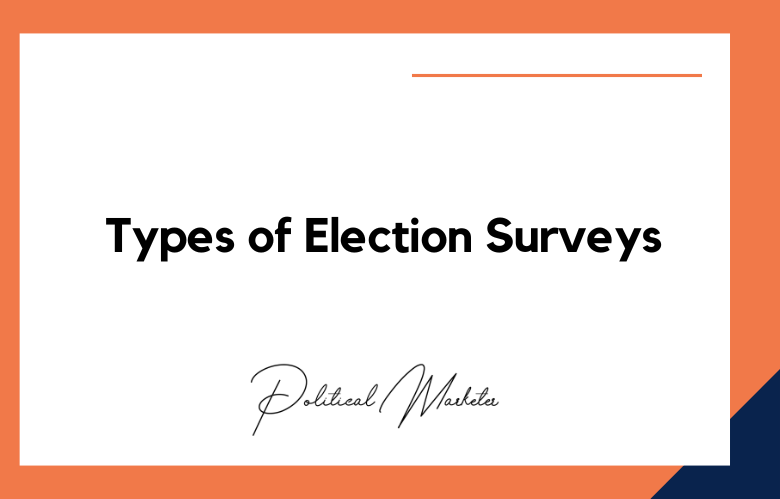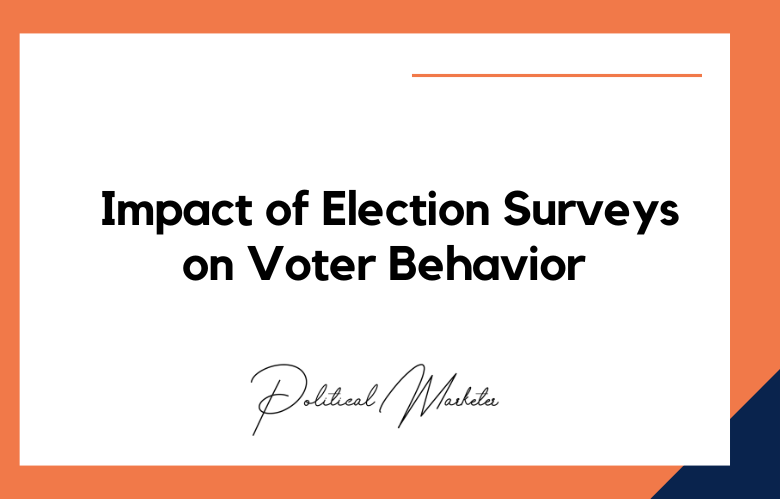As artificial intelligence (AI) advances, the need for high-quality data to train AI models has become increasingly important. However, certain data types, such as political data, can be challenging to obtain due to privacy concerns, ethical considerations, and legal restrictions. This is where political synthetic data comes in.
Political synthetic data is artificially generated data that mimics real-world political data but is created using algorithms and statistical models instead of collected from natural sources. This data type can be used to train AI models in various political tasks, such as predicting election outcomes, analyzing public opinion, or studying political behavior.
What is Synthetic Data?
-
Training Machine Learning Models: Synthetic data can be used to train machine learning models when real-world data is scarce or difficult to obtain. This allows models to be developed and tested in a controlled environment.
-
Data Augmentation: Synthetic data can be used to augment existing datasets, making them more extensive and more diverse, which can improve the accuracy and performance of machine learning models.
-
Data Privacy and Anonymization: Synthetic data can be used to protect sensitive information by creating synthetic versions of real-world data that preserve the statistical properties of the original data while protecting the privacy of individuals.
Political Synthetic Data and its Role in the World of AI
One of the main advantages of political synthetic data is that it can be generated in large quantities and with a high degree of control. It can train AI models on various political scenarios without collecting sensitive or confidential data from natural sources. Synthetic data can be generated to reflect specific political contexts or scenarios, allowing for more targeted and relevant AI training.
Another advantage of political synthetic data is that it can help overcome biases and inaccuracies that may be present in real-world data. Using synthetic data, AI models can be trained on a more representative and diverse data set, leading to more accurate and fair outcomes.
However, it is essential to note that political synthetic data is not a perfect solution and has limitations. For example, synthetic data may not capture the full complexity of real-world political systems, and it may not reflect unexpected or unusual events that can occur in politics. Generating high-quality synthetic data can be complex and resource-intensive, requiring a deep understanding of the political domain and advanced statistical techniques.
Political synthetic data is an emerging tool that can transform how AI is used in politics. By providing a safe, controlled, and scalable source of data, synthetic data can help overcome the limitations of real-world data and enable more effective and responsible AI development and deployment in politics.
Unveiling the Power of Political Synthetic Data in AI Advancements
In the artificial intelligence (AI) world, high-quality data is the key to unlocking the full potential of AI models. However, when it comes to political data, obtaining high-quality data can be a challenge due to privacy concerns, ethical considerations, and legal restrictions. This is where political synthetic data comes into play, revolutionizing how AI is developed and deployed in the political domain.
Political synthetic data is artificial data generated using advanced statistical techniques and algorithms to mimic real-world political data. It provides a safe and controlled alternative to real-world data, allowing AI models to be trained and tested on various political scenarios without collecting sensitive or confidential data.
-
Increased Availability: Synthetic data can be generated on demand, overcoming the limitations of real-world data availability, such as data scarcity or restrictions on data access.
-
Improved Privacy: Synthetic data can be generated without compromising the privacy of individuals, making it a valuable tool for political research that involves sensitive or personal information.
-
Enhanced Flexibility: Synthetic data can represent various political scenarios, allowing researchers to explore political conditions and outcomes in a controlled environment.
-
Better Generalizability: Synthetic data can be generated to represent diverse populations and geographical areas, improving the generalizability of research findings and reducing biases that may be present in real-world data.
Harnessing Political Synthetic Data: A Game-changer in AI
Artificial intelligence (AI) has grown tremendously in recent years and continues to evolve rapidly. However, one of the significant challenges in developing effective AI systems is the availability of high-quality data.
This is particularly true in the political domain, where data can be sensitive, biased, or challenging. Political synthetic data has emerged as a promising solution to this problem, offering a way to generate large amounts of data that can be used to train AI models in a controlled and ethical manner.
Political synthetic data is created using a combination of statistical modeling and machine learning techniques, allowing researchers to generate data that reflects specific political scenarios, contexts, or populations. This data type can be used to train AI models in various political tasks, from predicting election outcomes to analyzing public opinion and sentiment.
The Rise of Political Synthetic Data: Transforming the AI Landscape
The development of artificial intelligence (AI) has seen rapid progress in recent years, with AI systems being deployed in a wide range of domains, from healthcare to finance and beyond. However, in politics, the availability of high-quality data has historically been a limiting factor for AI researchers and developers. Enter political synthetic data, a groundbreaking innovation that promises to revolutionize how AI is used in politics.
Political synthetic data is generated using sophisticated machine learning algorithms and statistical modeling techniques to simulate real-world political scenarios and behaviors. By developing data that closely resembles real-world political data, researchers can train AI models to make predictions, analyze trends, and provide insights into the political landscape in a way that was previously not possible.
Democratizing AI: How Political Synthetic Data is Leveling the Playing Field
The term “democratizing” in the context of political synthetic data refers to the potential for synthetic data to level the playing field for those who may have previously been disadvantaged by the lack of access to high-quality data.
Traditionally, the collection and analysis of political data has been dominated by large corporations, governments, and well-funded research institutions. This has created a power imbalance, where smaller organizations, grassroots movements, and independent researchers may have been unable to compete with the data resources available to their larger counterparts.
Political Synthetic Data: Fueling Ethical AI Innovation
Ethical AI has gained increasing attention as AI systems become more prevalent and powerful. In the context of political synthetic data, ethical considerations are critical, given the sensitive nature of the data and the potential impact of AI systems on political processes.
One of the primary benefits of political synthetic data in promoting ethical AI innovation is that it allows researchers to generate data in a controlled and honest manner without relying on potentially unethical or harmful data collection practices. For example, real-world data collection can involve invasive techniques, such as tracking users’ online behavior without consent or collecting sensitive personal information without adequate privacy protections.
Unleashing the Potential of Political Synthetic Data in AI-driven Decision Making
The potential of political synthetic data in AI-driven decision-making is vast and wide-ranging. As synthetic data becomes increasingly accurate and sophisticated, it can provide new insights and capability to transform our political decisions.
One key area where political synthetic data can have a significant impact is in the field of policymaking. By generating data that simulates the impact of different policy interventions, researchers can more accurately predict the effects of proposed policies, helping policymakers to make more informed and effective decisions.
For example, researchers can generate synthetic data that simulates the impact of a proposed policy on economic growth, healthcare outcomes, or social well-being, providing a more comprehensive view of the potential impacts of different policy options.
Conclusion
Political synthetic data can potentially be a valuable tool in AI, providing a safe and ethical way to train models and conduct research in a politically charged environment. By using synthetic data, researchers can avoid the risks and biases associated with real-world political data while still benefiting from the insights and lessons that can be gained from studying political behavior and attitudes.
However, it is essential to ensure that synthetic data is generated responsibly and ethically, with appropriate oversight and regulation to prevent misuse or unintended consequences. Ultimately, the development and use of political synthetic data will depend on the collective efforts of researchers, policymakers, and the public to harness its potential while mitigating its risks.
Call: +91 9848321284
Email: [email protected]










